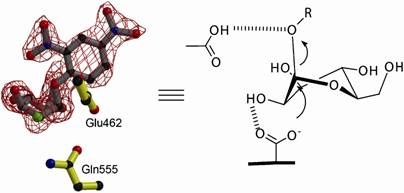Song receives ACS's Henry H. Storch Award in Fuel Chemistry
Chunshan Song, Distinguished Professor of fuel science and director of the College of Earth and Mineral Sciences' Energy Institute, Penn State, received the Henry H. Storch Award in Fuel chemistry.
The award in recognized Song's outstanding contributions to fuel science, especially in clean fuels, catalysis, and carbon dioxide capture and conversion research.
The Henry H. Storch Award, co-sponsored by the Division of Fuel Chemistry of the American Chemical Society and Elsevier Ltd., is given annually to recognize an individual in the field of fuel science for an exceptional contribution to research on the chemistry and utilization of hydrocarbon fuels. Special consideration is given to innovation and novelty in the use of fuels, characterization of fuels, and advances in fuel chemistry that benefit the public welfare or the environment. The award is the highest ACS Fuel Chemistry Division's honor for research.
Song is internationally known for his contributions to clean fuels, catalysis and carbon dioxide capture and conversion research. His early research on catalytic coal liquefaction and the effects of drying on low temperature coal conversion led to a method for preparing highly active dispersed catalysts. Further fundamental studies using probe molecules resulted in two patents related to nano-sized ultra-high-surface metal sulfide catalysts. From his efforts to make better use of coal-derived aromatics, he designed shape-selective alkylation catalysts used in the synthesis of advanced polymers precursors and engineering materials from naphthalene.
His contributions to coal-based advanced thermally stable jet fuels rely on the fundamental chemistry related to fuel composition and structure. For ultra-clean fuels and fuel cells, Song and his group devised a selective adsorption approach for removing sulfur from liquid hydrocarbon fuels without using hydrogen.
A Storch Award Symposium in Honor of Chunshan Song will be held at ACS Fall 2010 National Meeting, Boston, August 22 - 26.
Topics
Organizations
Other news from the department science
These products might interest you

Eclipse by Wyatt Technology
FFF-MALS system for separation and characterization of macromolecules and nanoparticles
The latest and most innovative FFF system designed for highest usability, robustness and data quality

HYPERION II by Bruker
FT-IR and IR laser imaging (QCL) microscope for research and development
Analyze macroscopic samples with microscopic resolution (5 µm) in seconds

Get the chemical industry in your inbox
By submitting this form you agree that LUMITOS AG will send you the newsletter(s) selected above by email. Your data will not be passed on to third parties. Your data will be stored and processed in accordance with our data protection regulations. LUMITOS may contact you by email for the purpose of advertising or market and opinion surveys. You can revoke your consent at any time without giving reasons to LUMITOS AG, Ernst-Augustin-Str. 2, 12489 Berlin, Germany or by e-mail at revoke@lumitos.com with effect for the future. In addition, each email contains a link to unsubscribe from the corresponding newsletter.
Most read news
More news from our other portals
See the theme worlds for related content
Topic world Synthesis
Chemical synthesis is at the heart of modern chemistry and enables the targeted production of molecules with specific properties. By combining starting materials in defined reaction conditions, chemists can create a wide range of compounds, from simple molecules to complex active ingredients.

Topic world Synthesis
Chemical synthesis is at the heart of modern chemistry and enables the targeted production of molecules with specific properties. By combining starting materials in defined reaction conditions, chemists can create a wide range of compounds, from simple molecules to complex active ingredients.
Last viewed contents

YDS Chemicals NV - Heusden-Zolder (Heusden), Belgium

SurTec International GmbH - Bensheim, Germany

Kwizda Agro GmbH - Wien, Austria

Annen Verfahrenstechnik GmbH - Wasserburg, Germany

Schüttguttechnik Borgner & Partner GmbH - Hirzenhain, Germany




























































